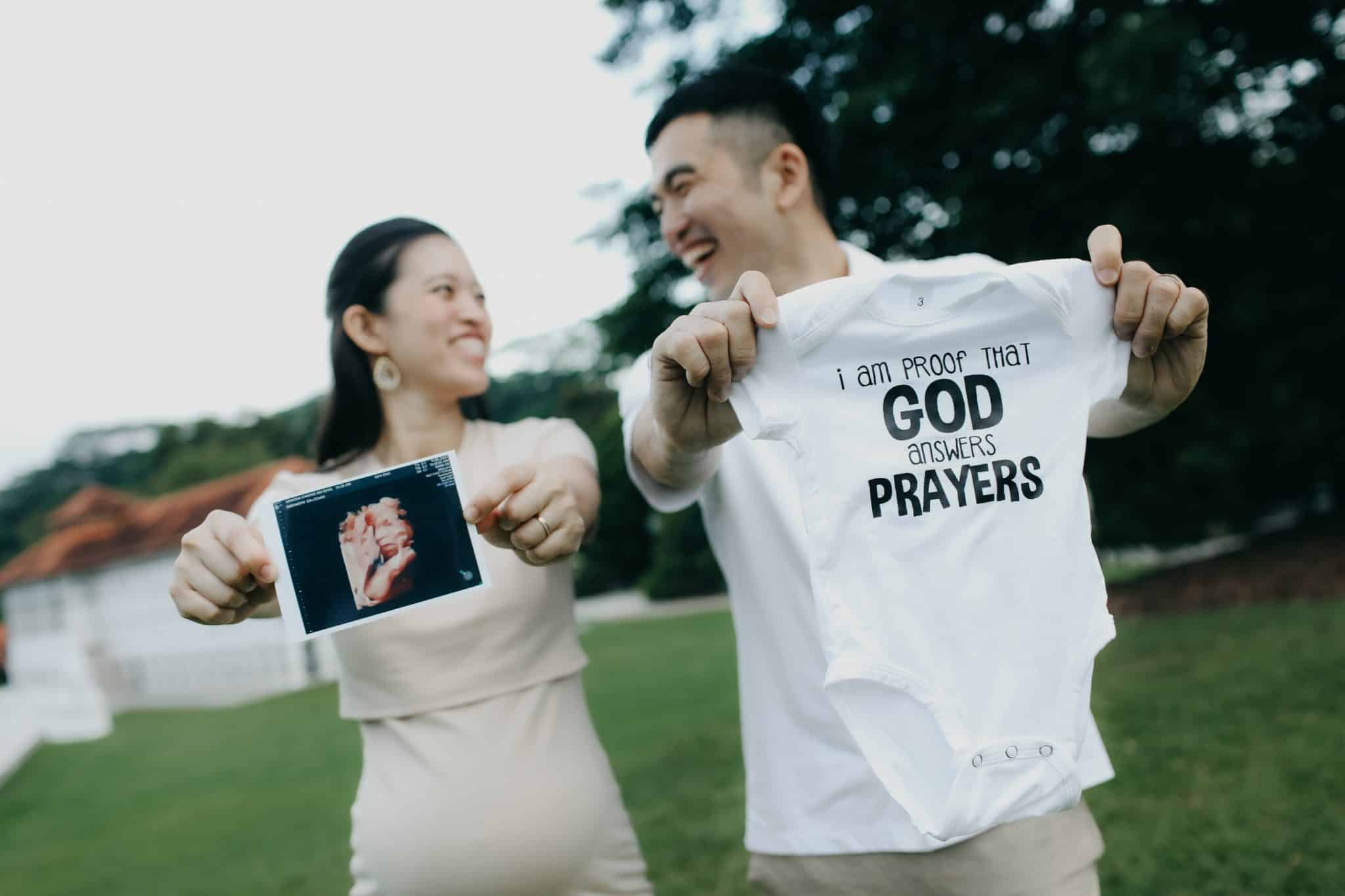“We didn’t think about things like their PSLE. We didn’t know if they would make it to tomorrow”: Parents of premature quadruplets
by Christine Leow // April 12, 2024, 5:16 pm
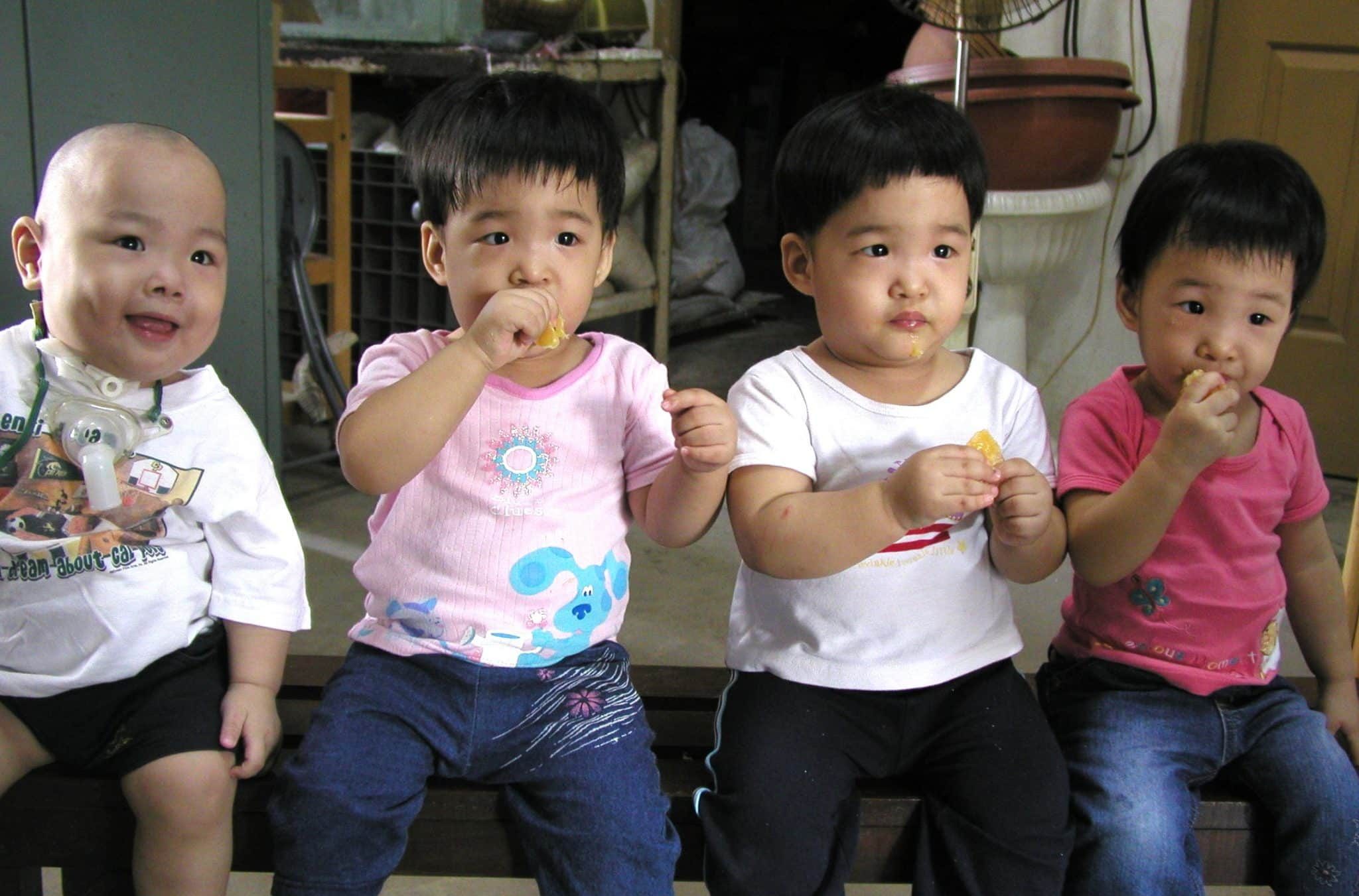
The Cheng quadruplets had only a 40% chance of survival when they were born in 2004, a fact their parents knew nothing about till they were featured in the newspapers recently. All photos courtesy of Cheng Ching Kang.
When Yannis Cheng was born, he weighed about 800g, less than the weight of a raw chicken. That he survived was a miracle. But there was more.
Yannis’ fraternal twin and another set of identical twin sisters were kept in their mother’s womb another nine days to give them a greater chance of survival. His sisters were delivered at almost 28 weeks, far from the 40 weeks that is considered full-term.
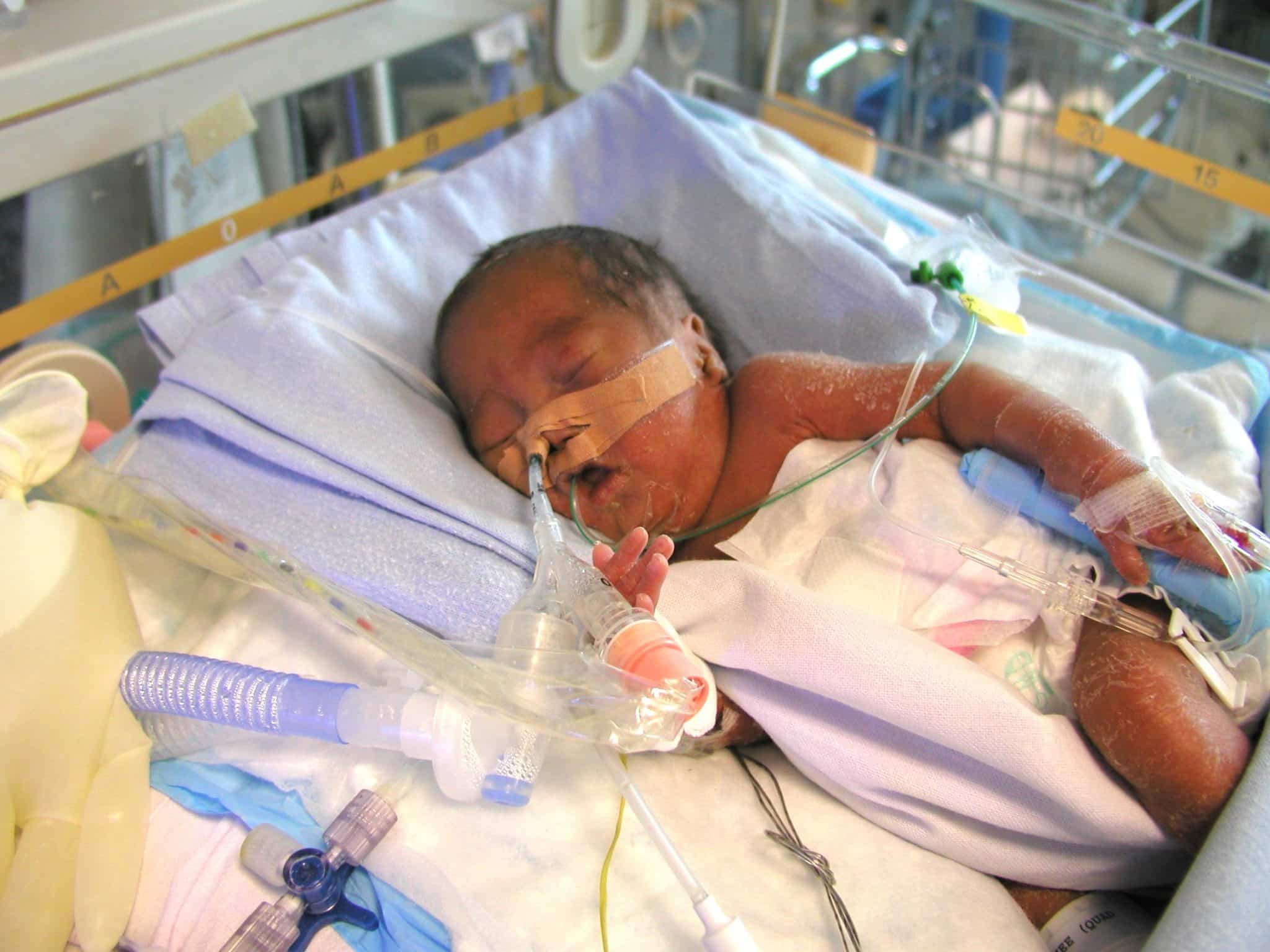
Yannis, part of a pair of fraternal twins, was the first of the quadruplets to be born.
All four of the quadruplets were hospitalised at the Neonatal ICU (NICU) at KK Women’s and Children’s Hospital (KKH) and, for the first 40 days of their lives, were simply called Quad 1, Quad 2, Quad 3 and Quad 4.
“We had no time to think of names. After the quads were born, there was so much going on that we had to do one day at a time,” their father Cheng Ching Kang, 54, told Salt&Light.
Each of the names they settled on “is related to God”.
When they were reminded to register their babies’ births, the Chengs had just two days to think of their names. Parents can register their babies at the hospital within 42 days of their births. After that, they have to do so at the Central Registry.
The couple wanted Hebrew names for their children because of their Christian faith. They turned to Google for names “related to God”.
Their oldest, a boy, is Yannis, which means “God is good”. The rest of the girls are Abby which means “God is joyous”; Shana, “God is gracious”; and Zacharee, “God remembers”.
Through the 20 years of the quadruplets’ lives, God indeed showed them and their parents that He is a good and gracious God who brings joy and remembers His people.
No children for 8 years
In the early years of their marriage, Ching Kang and Betty were not too worried about the fact that they could not have children.
“We thought: Don’t have kids, never mind. We will seek help if we need to,” said Betty, 56.
When another few years passed, they thought they would look into the matter. But then Ching Kang decided to further his studies in software engineering in the US and the idea was put on the back burner.
“Be it successful or not, we would have to face it and take it graciously and say, ‘Thank you God.'”
While there, they became close friends with an elderly missionary couple who invited them to Bible study classes. Through them, they got to hear the Gospel and became Christians on the Good Friday of 2002.
When they returned to Singapore, they resumed discussions about having children. This time, they sought God’s help.
Said Betty: “We prayed for God’s grace upon us, that He would give us children. We thought it would complete our lives.”
They gave In-Vitro Fertilisation (IVF) a try but decided early on that they would only do one round of assisted reproduction.
“Be it successful or not, we would have to face it and take it graciously and say, ‘Thank you God for that opportunity to have that kind of extra chances.’
“Our hearts were not so heavy-laden with, ‘I just have to have it, I must have children.’
“We also prayed and asked for God’s presence because IVF is not an easy process and we didn’t know what we would be facing in the future,” added Betty.
By then Ching Kang and Betty had been married eight years.
God’s gift
When the time came for Betty to go for her first scan after the embryos had been transferred, the couple prayed again.
“I was hoping for twins,” said Betty.
Added Ching Kang: “I also prayed for twins.”
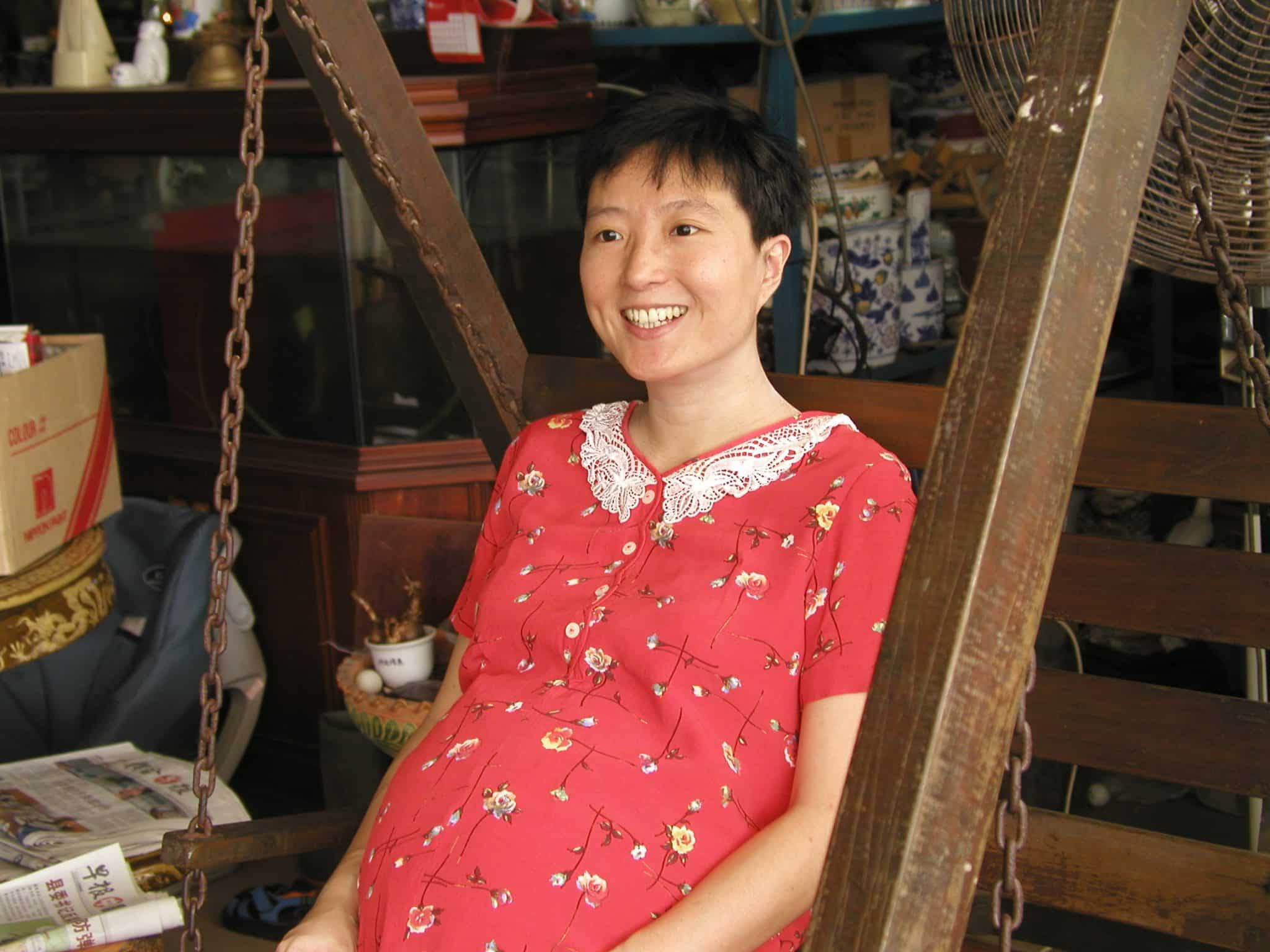
Betty worked throughout her pregnancy, which was a difficult one.
The scan showed that they indeed had twins – two sets of them, in fact. To this day, Ching Kang likes to tell people that God answered both their prayers.
Soon after, though, there was bad news.
The quadruplets were made up of a set of identical twins and a set of fraternal twins. The identical twins were monochorionic twins, sharing a single placenta. Though not uncommon (about 70% of identical twins are monochorionic), it was a high-risk situation.
“The Bible says children are God’s gift. We felt we couldn’t tell God, ‘Sorry, You made a mistake.’”
When twins share a single placenta, blood may flow unevenly between them, a phenomenon called twin-to-twin transfusion. This causes disproportional growth of the babies as blood carrying oxygen and nutrients is unequally distributed.
The twin who gives away more blood than it receives risks malnourishment and organ failure. The twin who receives too much blood may suffer cardiac complications.
In the case of the Cheng quadruplets, the fraternal twins could be affected by this imbalance as well.
“When they told us the problem, my heart cheng dao wu di (sank to the lowest point),” said Betty.
They were presented with the option of aborting the monochorionic twins, and had 24 hours to make the decision.
“I was so sad. It was like a tap came on – I cried and cried non-stop. Even when I was sleeping, I was crying,” said Betty.
Said Ching Kang: “We had prayed for children. God had answered our prayers and we could not now, because of this risk, just flip and try to do it our own way.
“The Bible says children are God’s gift. We felt we couldn’t just decide on behalf of God, telling Him, ‘Sorry, You made a mistake.’”
So they told their doctor they would keep all four babies. And a calm came upon them.
“My tears stopped,” remembered Betty.
God is good
The pregnancy was not an easy one. Betty’s pregnancy hormone level was so high that she was constantly nauseated. Because she was throwing up so much, she was always dehydrated as well.
They knew full well that she would likely deliver the babies early. To encourage each other, the Chengs ticked off each day of Betty’s pregnancy on a self-made calendar.
“I would talk to the identical twins and tell them to share equally and not fight for more.”
“At the end of a day, I would thank God for that day because this is the day He had made for me (Psalm 118:24) and I had survived the day,” said Betty.
“I would talk to the identical twins and tell them to share equally and not fight for more. We would also pray for God’s protection for all four babies. That’s how we survived each day.”
The Chengs also made it a point not to find out too much about the possible negative outcomes of high-order multiple pregnancies.
Said Ching Kang: “We became ostriches. We just took each day as a blessing. We just focussed on surviving the next day.”
At 26 weeks, Yannis’ water bag broke. He was part of the pair of fraternal twins, each with a placenta and amniotic sac of their own.
He had to be delivered. But the question was: Should his siblings be delivered as well? The conventional practice then was to deliver all four babies. But the doctor caring for Betty had just returned from the United Kingdom the year before where he had been trained to deliver one baby while keeping the others in the womb.
“I prayed and waited. But I was not afraid.”
“We were told that the best place for babies to grow well is in the mummy’s tummy. Every hour in there would be beneficial to the three girls,” recounted Ching Kang to Salt&Light.
“When he told us that, he looked at us and we looked at him. How to make that kind of decision? So we prayed. Then we went with his second option to keep the three babies in.
“After 20 years, we are very grateful that God had sent him to handle our case. We believe God had sent him to the UK for a purpose.”
Four teams of medical professionals were in attendance at Yannis’ natural birth – one to care for each baby.
“God is so good. My son’s position was correct when the water bag burst and there were contractions,” said Betty.
Ching Kang was not allowed into the already crowded delivery room.
“I prayed and waited. But I was not afraid.”
Waiting 9 days
While Yannis was whisked away to the NICU, Betty was put on bed rest. She was not able to visit her firstborn, nor express milk for him.
Describing the days before the girls were delivered, she said: “I had trouble passing urine because one of the girls was pressing against my bladder. It was not only uncomfortable, it was painful.
“With Yannis out, I had two babies on one side and one baby on the other side. To lie flat completely, I would have two babies across my tummy. It was so uncomfortable.
“There is one thing that I do, I pray. That is the most powerful thing you can do for your children.”
“But to lie on my side, one side would be heavier than the other and I could feel the pull on the heavier side. So I had to keep switching sides.”
Nurses whom the couple dubbed “godsend angels” tended to Betty, soothing her discomfort, and also cared for Yannis who had all kinds of tubes in him to help him breathe and feed.
Said Ching Kang: “You know how we talk about God doing miracles through humans? The nurses were the miracles. Without them, my babies would not be where they are.”
Every day, Ching Kang would visit Betty and the couple would pray together. Then he would visit Yannis.
“During the day, no news was good news. There was one thing that I could do – I prayed. That is the most powerful thing you can do for your children.”
A week and a half later, Betty developed a fever. For fear that the infection would affect the babies, the doctors had them delivered by Caesarean-section. The girls – Abby, Yannis’ fraternal twin, and Shana and Zacharee – weighing at about 900g, joined their brother at the NICU.
Abby was hospitalised for 80 days. Shana and Zacharee went home a week later. Yannis remained in the hospital the longest – 179 days.
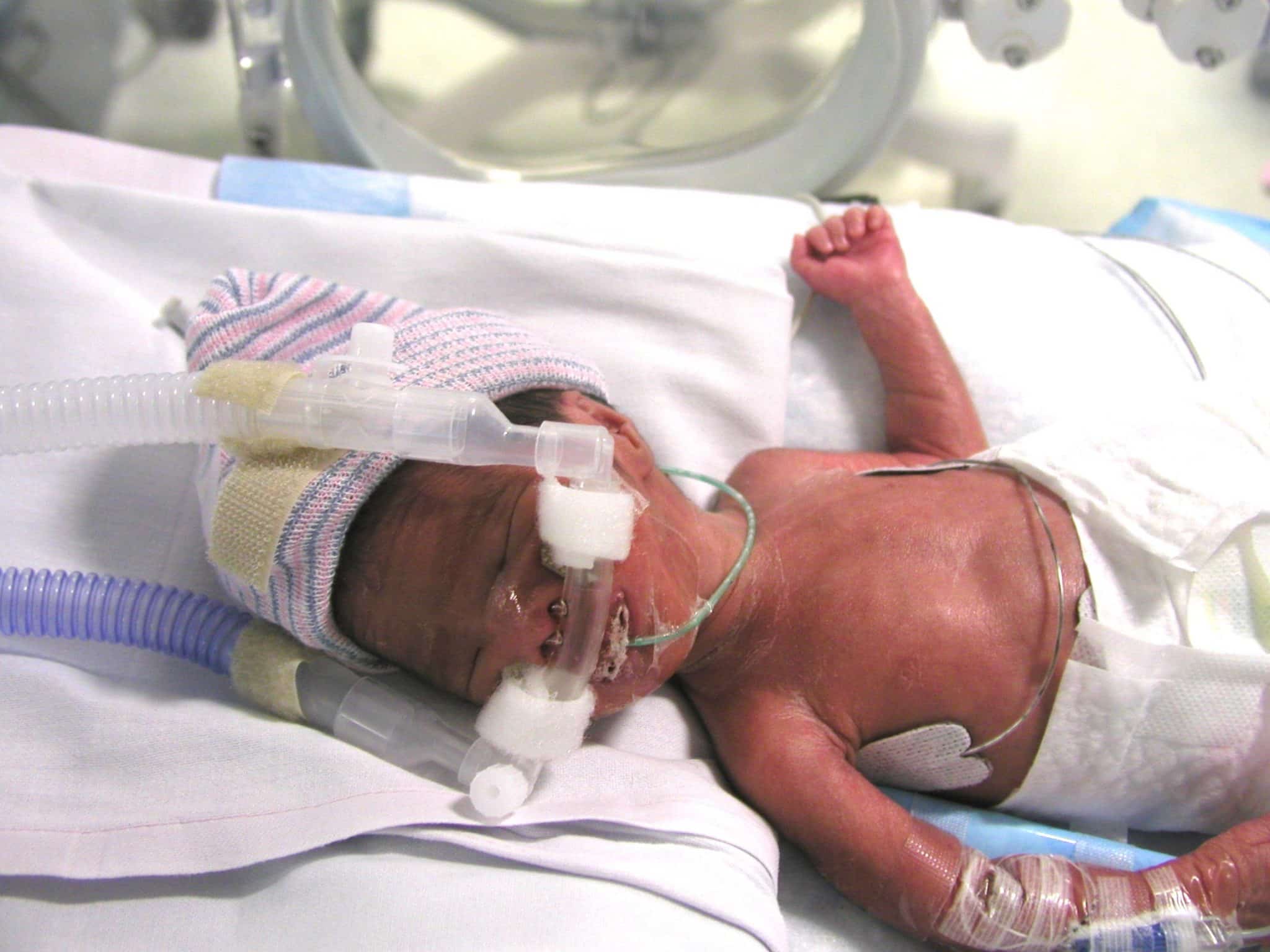
Abby was the first to be discharged from the hospital.
“Only after 179 days could we see him without tubes,” said Ching Kang.
“When you are in that situation, you just live one day at a time. We didn’t ask things like: What would happen to them at PSLE? We didn’t even know if they could make it to tomorrow. What we know is that they were God’s gift.”
God provides
In the months that followed the births, life for the Chengs was a whirlwind of hospital visits, doctor’s updates and, for Betty, pumping milk to feed the babies because Yannis had to be tube-fed and the girls were too tiny to latch on.
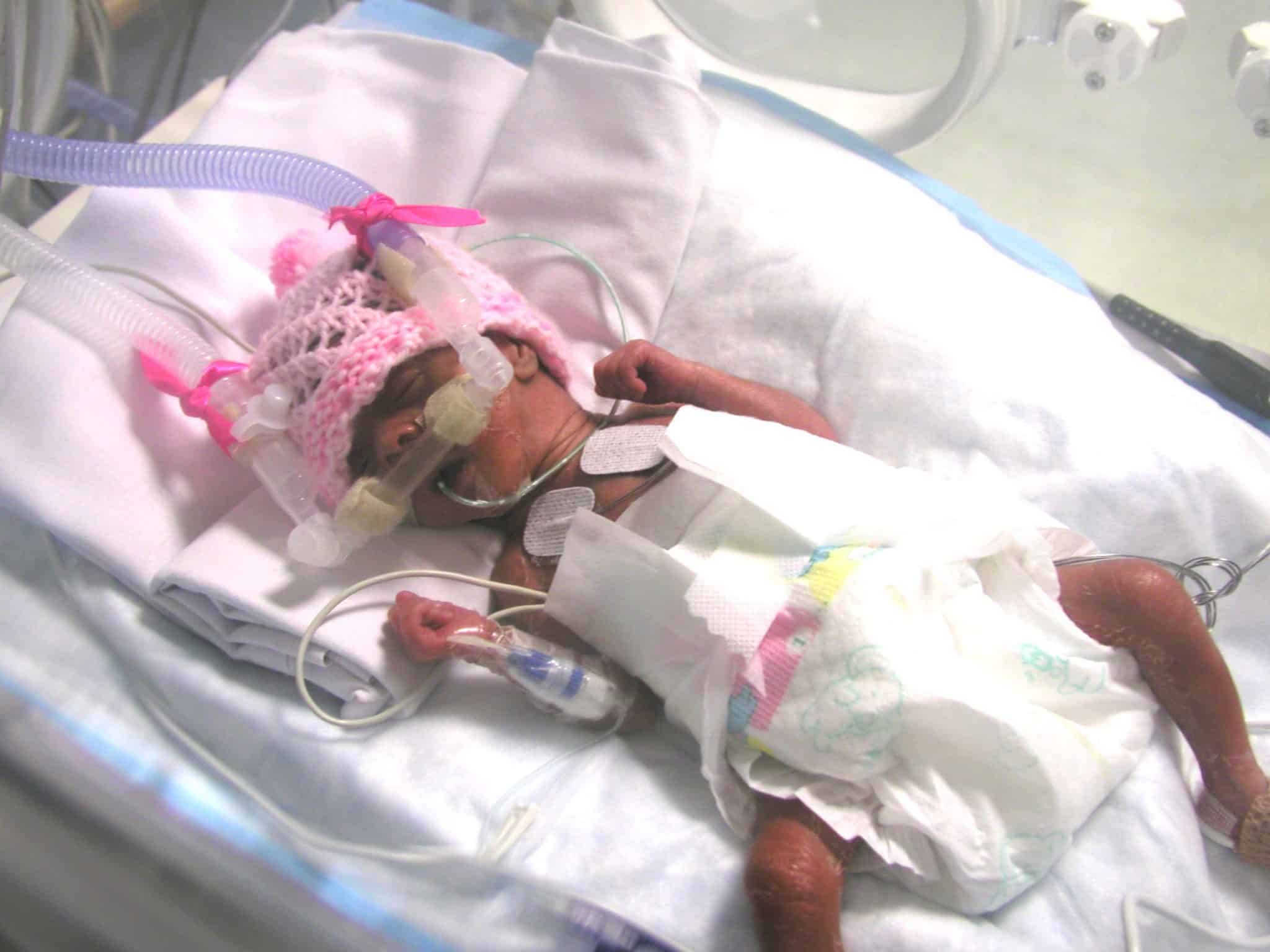
Zacharee spent almost three months in the hospital before she could go home.
“The lactation nurse came to see me three days after I delivered. She tried to help me express the milk but there was not even enough to cover the base of the bottle.
“I was helpless. But God provided.”
“I was screaming because it was so painful. But I endured and we managed to get the first few drops.”
But even expressing every three hours, Betty could not produce enough milk for four babies. But God sent help.
A colleague who had not really known Ching Kang before found out about their situation. She offered to collect breast milk from a milk bank for the babies. Every week, she delivered an ice box of breast milk to them.
A new mother in their church who had given birth a month after Betty also donated her milk to the quadruplets.
“I saw my wife’s situation and I was helpless. But God provided,” said Ching Kang.
God saves
A week after Shana was born, her stomach became bloated. An X-ray revealed a black patch on her liver. Doctors said it could be an abscess inside her liver, on its surface or between the liver and the skin.
There was no way of knowing without having her go under the knife.
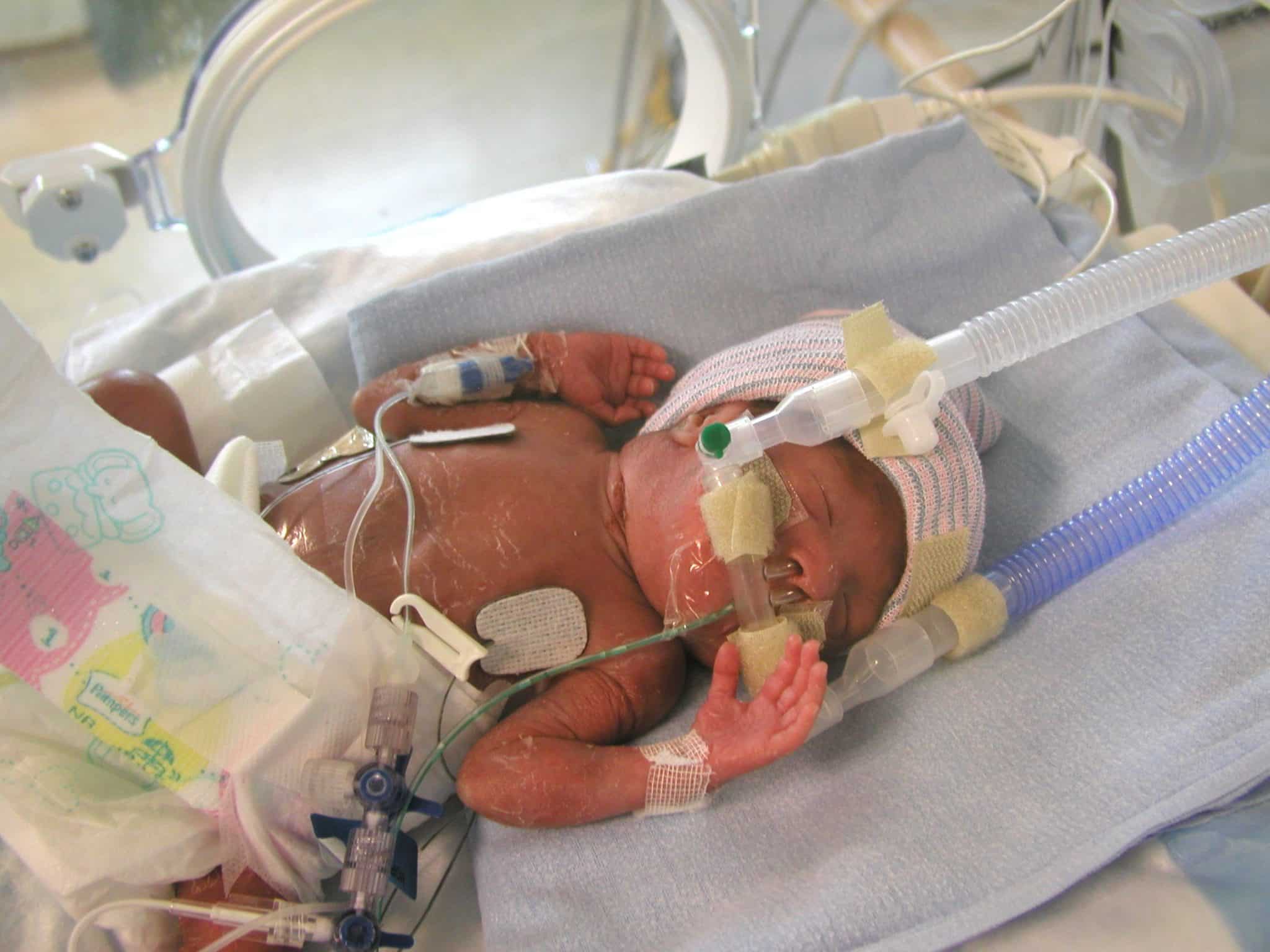
Shana spent the first three months of her life in the hospital.
Ching Kang chose not to burden Betty with the news. Instead, he and the doctor prayed for God to heal Shana. When they opened her up, they found that the abscess was on the surface of the liver and could be easily drained.
“In his short life, his best friend was all the machines that helped him breathe.”
“She now has a scar there, a testimony of God who heals and provides. When you are presented with a problem that no amount of money can solve, you can only rely on God,” said Ching Kang.
While his sisters were born with lungs largely developed, Yannis needed to be intubated to help him breathe. He was also attached to an IV drip for medication.
“In his short life, his best friend was all the machines. With the breathing tube stuck up his nose, he couldn’t move. I can’t imagine how uncomfortable it must have been.
“I am thankful for the nurses who poured so much love on him and talked to him,” said Ching Kang.
As Yannis grew older, he would try to shake off the tubes or yank them out. Each time this happened, it was life-threatening because, without the tubes, he would not be able to breathe.
The sensors would alert the doctors and nurses to the Code Blue situation, and they would rush to intubate him again.
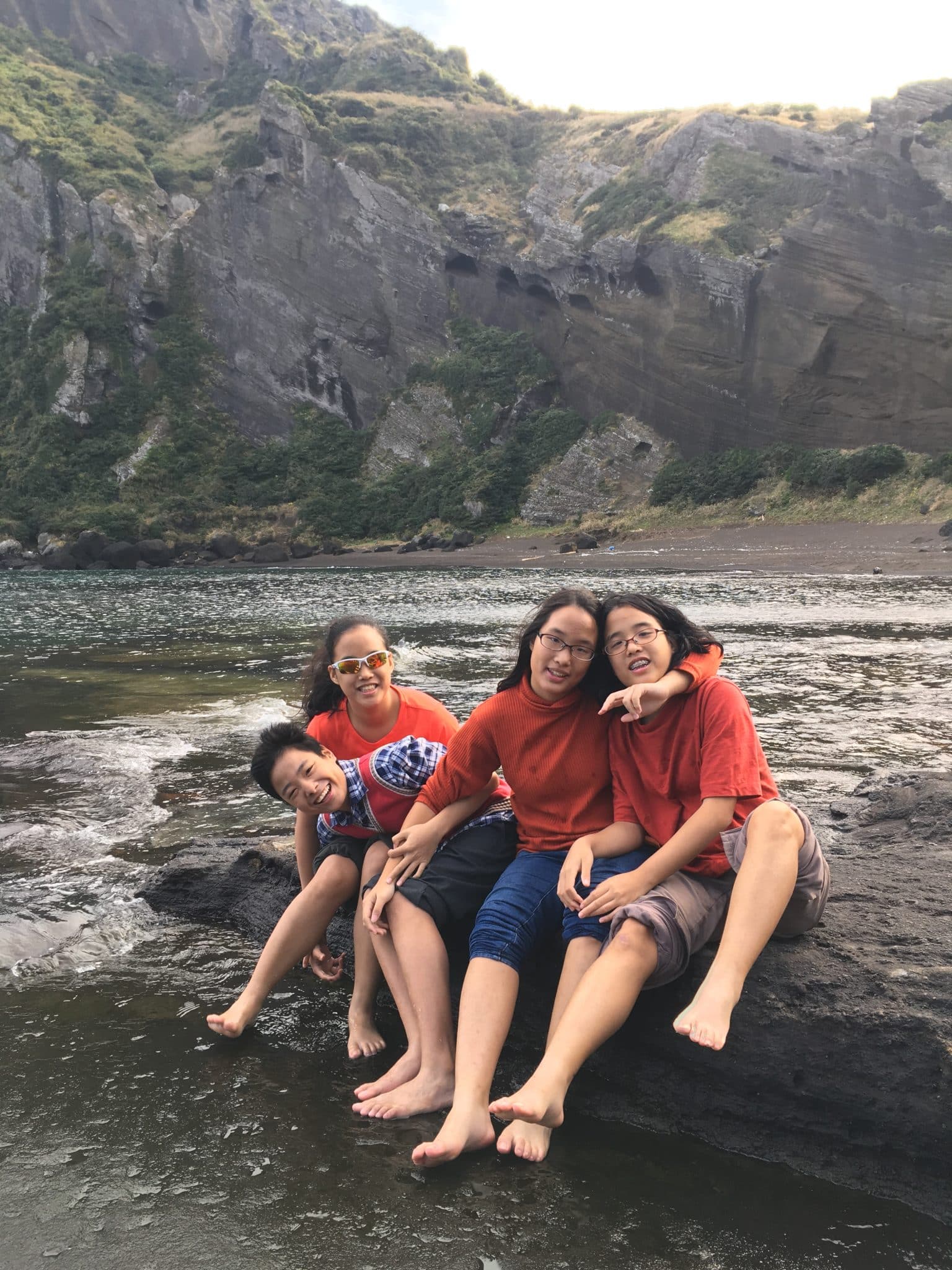
Shana, Yannis, Abby and Zacharee as 12-year-olds.
On one occasion, as they were walking to Yannis’ incubator, they saw doctors and nurses rushing to him.
“On the fifth month of his life, we finally got to see his face without the tubes.”
“We couldn’t see him. We could see the curtain being drawn. But we had no idea what was happening behind the curtain.
“That unknown was so scary. I was so helpless. We couldn’t see him, couldn’t touch him. I remember I was so weak, I really trembled because my knees were knocking together.
“We could only pray. We kept praying till the curtains were drawn apart,” said Betty.
Yannis was five months old before they could perform a tracheostomy to allow him to breathe through his trachea. Before that, every time they tried to remove the intubation tube, he would collapse.
Said Betty: “On the fifth month of his life, we finally got to see his face without the tube blocking it. And we said, ‘Oh, so handsome!’”
Even when home, Yannis had to be watched round the clock. He still could not breathe on his own. Instead, he was attached to a ventilator that supplied pure oxygen to his lungs. They had to constantly check that he was getting enough oxygen.
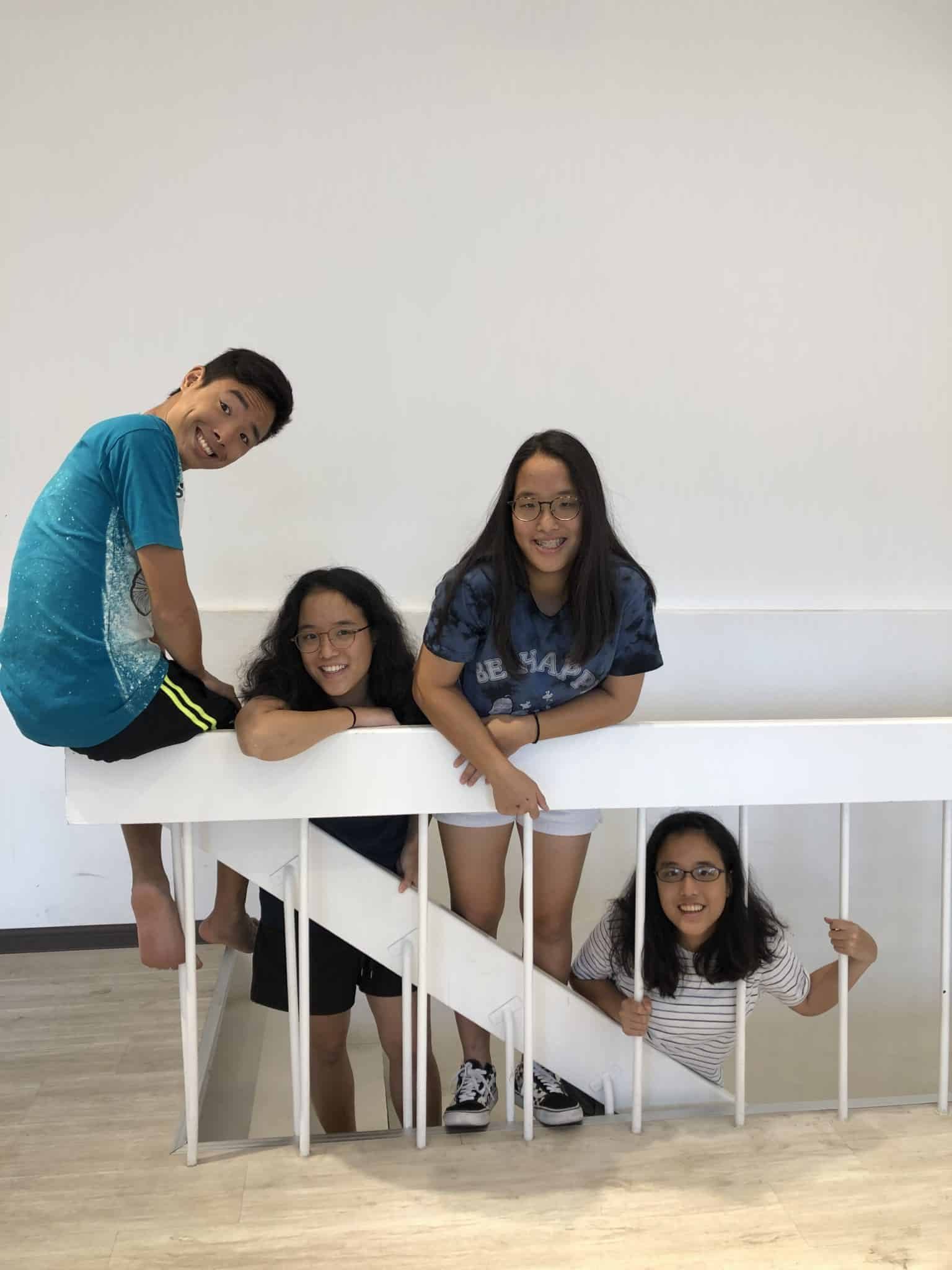
Yannis, Zacharee, Abby and Shana at 15.
“We learnt to look at his lips. If they are pink, it is good,” said Ching Kang.
Because air, unfiltered by the nose, is very dry, Yannis also had a humidifier to moisten the air he breathed. A suction machine was also always on standby to siphon excess mucus that could block his airways.
“I thanked God for letting us see what had happened to him.”
On one occasion, Yannis was put down for a nap. One of the three domestic helpers hired to help care for the children happened to walk by his cot and noticed that he had turned blue.
“My goose bumps are raised even as I tell you this now,” said Betty.
“My helper usually puts them down for their nap in a prone position. How did he have the strength to flip himself over so she could see that his face had turned blue?
“At that time, I thanked God for letting us see what had happened to him, and for letting the helper walk by so we could do the necessary like try to loosen the phlegm and suck it out as much as possible.”
They rushed Yannis to the hospital in time.
Home at last
It would be four years before Yannis could breathe on his own. In that time, he could not eat or speak because of the tube inserted into his trachea. For sustenance, he had a gastrostomy so that liquid food could be fed directly into his stomach.
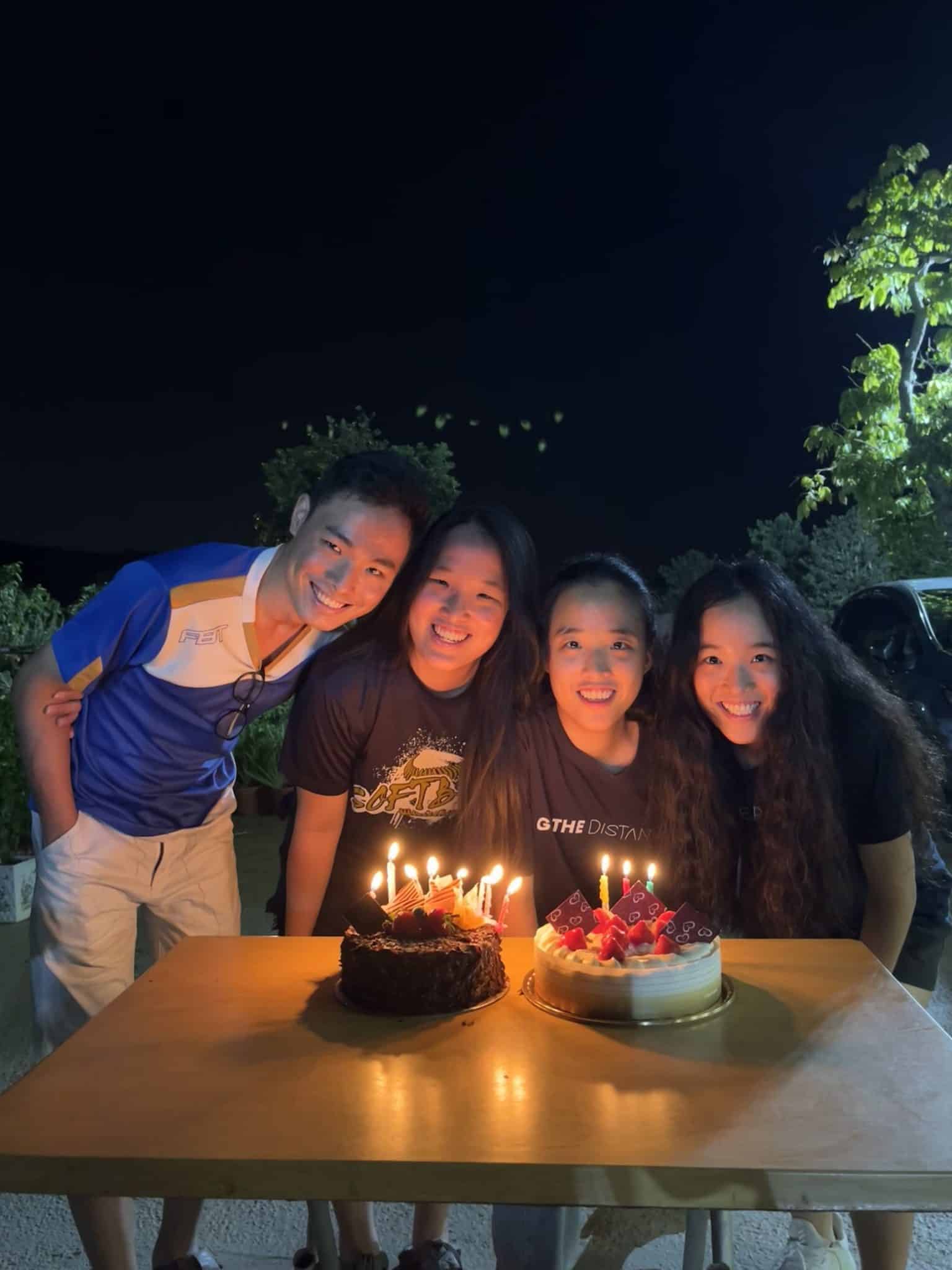
Yannis, Shana, Abby and Zacharee celebrating their 18th birthday.
“When he cried, you can only see his expression. There was no sound because the vocal cords are just above the trachea,” said Ching Kang.
“You just need to trust God.”
Yannis had to be taught to chew and to speak. Because he had three sisters who were ahead of him in all the milestones, it motivated him to try things out. The day after he had the tube removed from his trachea, Yannis ate his first food – prawn crackers.
“The sound of the cracker in his mouth was so amazing to hear because it was from Yannis,” said Betty.
His weaker lungs would land him in the hospital even after he could breathe on his own. But by the time he hit Primary School, his condition stabilised.
Growing up, the quadruplets were told the story of their births and the God who had sustained them all.
As a result, they have a heart to give back. They started going on short-term mission trips in secondary school.
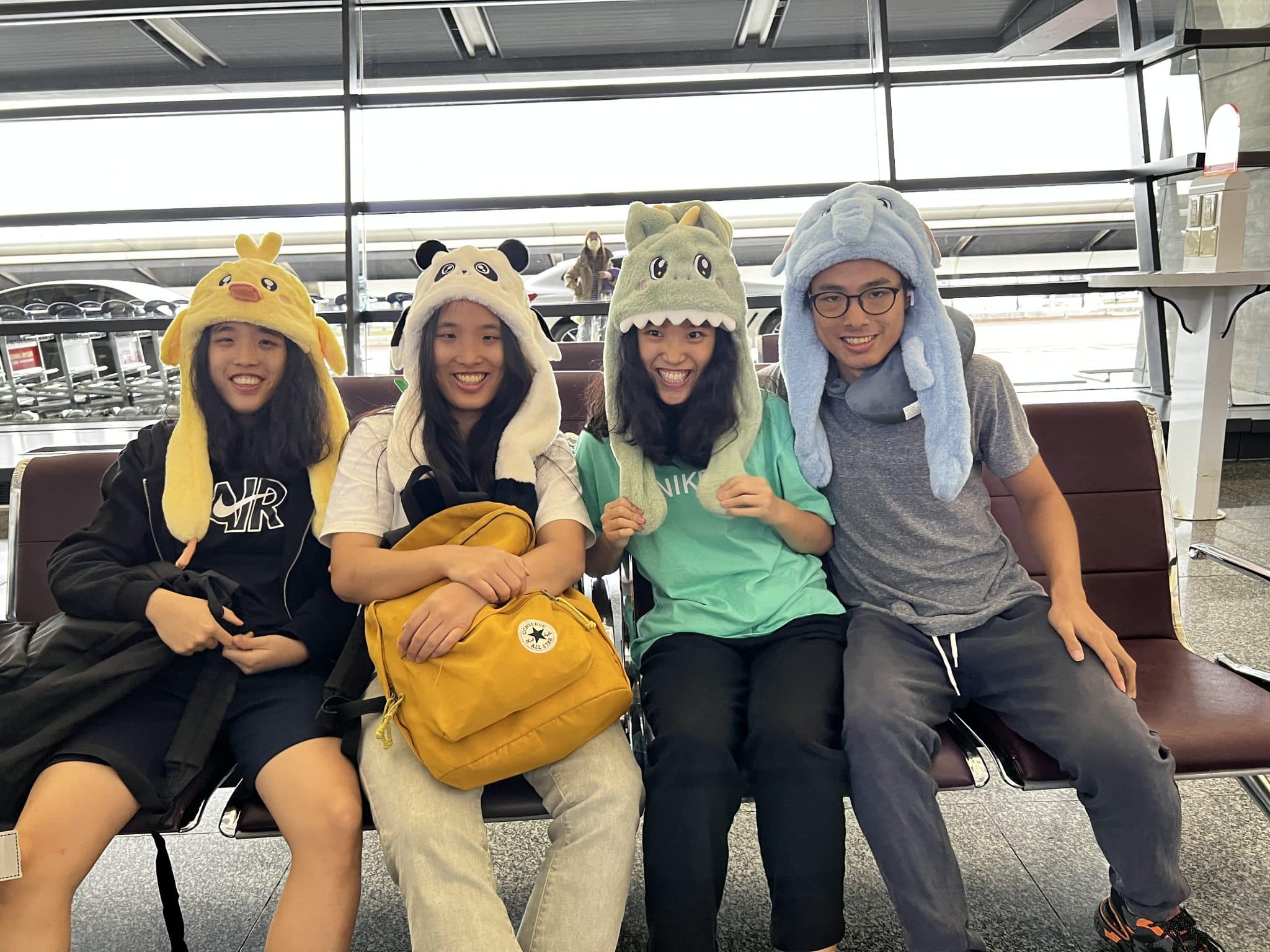
Shana, Abby, Zacharee, Yannis at Singapore Changi Airport. Zacharee and Shana are currently studying in Malaysia.
Yannis also serves in church. Zacharee is pursuing medicine in the hopes of becoming a doctor and helping other premature babies like herself.
The quadruplets are now 20 years old.
Asked if there was one lesson that has sustained the family through the years, Ching Kang said: “You just need to trust God.”
RELATED STORIES:
Don’t say “I know how you feel”: Here’s how to be really present for someone who is grieving
“I blamed myself”: Pastor’s long journey of infertility and pain
We are an independent, non-profit organisation that relies on the generosity of our readers, such as yourself, to continue serving the kingdom. Every dollar donated goes directly back into our editorial coverage.
Would you consider partnering with us in our kingdom work by supporting us financially, either as a one-off donation, or a recurring pledge?
Support Salt&Light

